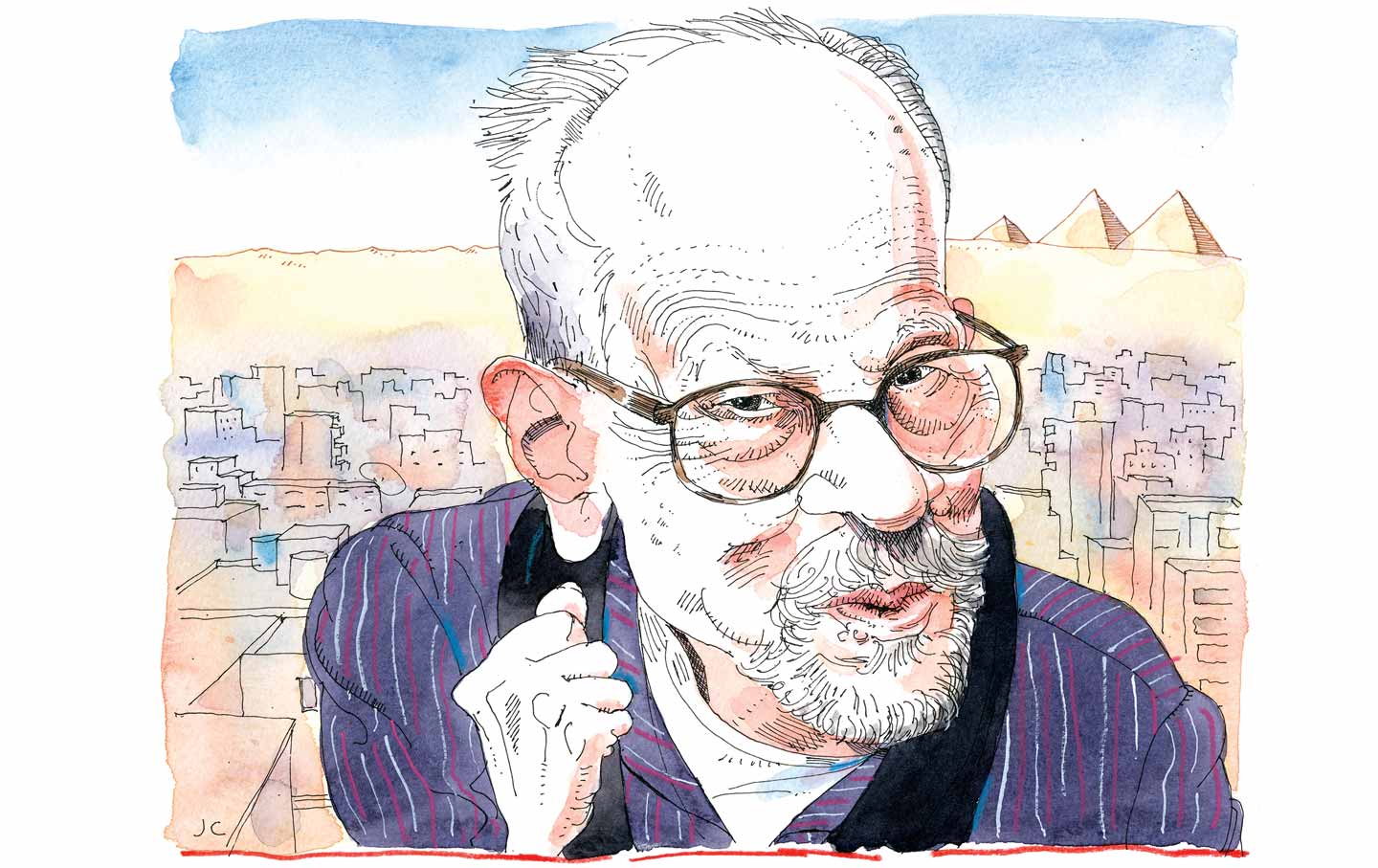by URSULA LINDSEY
 Author Naguib Mahfouz ILLUSTRATION/Joe Ciardiello.
Author Naguib Mahfouz ILLUSTRATION/Joe Ciardiello.
I met Naguib Mahfouz once. It was in the winter of 2006, and I’d been living in Cairo for three and a half years. The writer Gamal Al-Ghitani, an old friend of Mahfouz’s, provided me with an introduction to one of his weekly gatherings. I went to a Holiday Inn in the suburb of Maadi. The hotel faced the Nile across four lanes of traffic. There was a metal detector at the front door. Ever since he was nearly killed by a young fundamentalist in 1994, Mahfouz no longer frequented the downtown cafés where he had met friends and fellow writers for half a century.
It was a small group; I can’t remember any names. There must have been a few of Mahfouz’s old friends and a few new admirers such as myself. Also in attendance was a well-known Cairo character, a middle-aged American who favored white suits and who claimed, for decades now, to be writing Mahfouz’s biography.
Mahfouz was 94 then. He was enveloped in an overcoat that was too big for him and made him look like a small, wizened, sympathetic turtle. He was nearly blind and deaf, and one of his companions sat right next to him and yelled into his ear. His right hand was contracted into a claw, a consequence of the attack 12 years before, when a young man approached him while he was sitting in a car, reached in, and stabbed his throat. Because of the way Mahfouz, already elderly, was sitting hunched forward, the would-be assassin just missed his carotid artery.
That evening at the Holiday Inn, Mahfouz had a Turkish coffee and a single cigarette. His pleasure in these rituals, and in the give-and-take of conversation, difficult as it had become for him, was evident. He was surrounded by those who respected him and held him in high regard; everyone strived to amuse him, and when he laughed, long and hoarsely, his small, bony face lit up and turned boyish. I think he asked me who my favorite writers were, and told me he admired Shakespeare and Proust. At one point he asked me if I thought his novel Children of the Alley was “against religion”? This was the book whose allegorical retelling of events from the Bible and the Quran had been deemed blasphemous and had led to the assassination attempt.
Flustered, I answered no, I didn’t think the book was against religion. I won’t forget his wry, slightly disappointed smile. I wish I had said something more honest or more interesting, such as “Even if it is, I don’t care.”
Mahfouz signed my copy of The Cairo Trilogy in a labored, gnarled hand. He’d spent years teaching himself how to write again, but after a few years’ reprieve, the atrophy had returned. He died that summer.
Naguib Mahfouz lived for almost a century, and he wrote for most of that time: short stories, plays, scripts for Egypt’s booming movie industry, and novels that, serialized in Egypt’s leading magazines and newspaper, became classics. In 1988, he won the Nobel Prize for Literature; today, he remains the only Arab author to have received that honor.
The Nation for more
